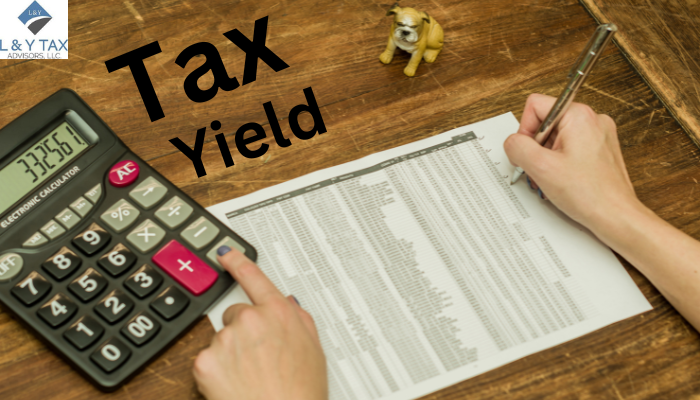
Who Pays Property Taxes on a Land Contract?
Property deals are typically fraught with financial complexities, and one commonly asked issue in real estate circles is, ‘Who pays property taxes on a land contract?’ The solution is more complex than one may imagine.
Let’s look at the complexities of property taxes in the context of a land lease.
Understanding the Fundamentals
Before revealing who pays property taxes on a land contract, it is essential to understand the fundamentals of a land contract.
A land contract, also known as a contract for deed or installment contract, is a mortgage financing option. The seller keeps ownership of the property under this arrangement while enabling the buyer to inhabit it and make payments over time. It is similar to a rent-to-own agreement but with the ultimate transfer of ownership.
Tax Obligation During Installment Contract
Property tax liability in a land purchase is frequently determined by the conditions established between the buyer and seller. Once the contract is signed, the buyer is responsible for property taxes. On the other hand, the specifications might vary and are stated in the agreement itself.
Buyer’s Obligation
Buyers on a land contract frequently assume liability for property taxes as part of their agreement to maintain the property. This obligation may be expressly specified in the contract, making it the buyer’s responsibility to ensure timely payment of property taxes to avoid penalties or repercussions.
Involvement of the Seller
While the buyer typically bears property taxes, some land contracts may require the seller to stay responsible for tax payments. This scenario may occur if the seller wants to retain some control or supervision during the contract duration. However, such occurrences are rare and primarily depend on the parties engaged in talks. Availability of the best tax advisor services would be a great help!
Importance of Specific Contractual Terms
The importance of contract clarity must be balanced. To avoid confusion or disagreements, both parties should carefully read and comprehend the provisions of the land contract. Clarifying who is accountable for property taxes, among other financial duties, reduces the likelihood of future conflicts.
The Effect on Ownership Transfer
The legal title stays with the seller until the land contract is fulfilled and ownership formally passes to the buyer. This technicality frequently means that the seller retains responsibility for ensuring that property taxes are paid on time to avoid any liens or legal concerns that may hamper the property’s transfer.
Buyers’ Potential Risks
Buyers should be diligent in ensuring all applicable property taxes are paid. Failure to meet this commitment may result in fines, interest charges, or even a tax lien against the property, jeopardizing the buyer’s rights under the land contract.
What is gain tax on property?
Capital gains tax is often called gain tax on real estate. It’s a tax levied on profits realized by the sale of an asset or property. The difference between a property’s original price of purchase and its sale price can be considered as a capital gains. In many countries, this gain will be taxed.
Capital gains tax rates can be affected by factors like the length of time the asset has been owned and tax laws in the region or country where it is situated. Long-term gains from holding assets for an extended period of time may have a reduced tax rate.
Capital gains tax may be subject to a variety of exemptions or deductions, based on factors like the type of property, the use (e.g. primary residence), the reinvestment into other assets similar in nature, and allowances made for inflation.
It is important for investors and property owners to understand the capital gains tax implications, since they can have a significant impact on the profitability of real estate transactions. Consult a property tax expert or tax accountant to maximize returns and minimize tax liability.
Who Pays Homeowners Insurance on a Land Contract?
Under a land contract, the buyer usually carries the majority of the financial risks and owns an equitable interest in the property, even while the seller retains legal title. As a result, the buyer is usually responsible for obtaining homeowners insurance on the property.
To ensure that the seller is informed in the event of a claim, many agreements demand the buyer to identify the seller as an ‘additional interest’ on the policy.
Another option is escrow, in which the seller draws premiums from an insurance escrow account that the buyer finances. This arrangement is perfect for protecting the seller’s collateral while delivering administration to the escrow agency.
Specialized supplemental landlord policies in commercial markets can fill in structural liability or title insurance gaps, providing additional security in the context of a tangled legal environment.
Read: What is a VAT number in the US?
Does a Land Contract Have to be Recorded?
Even if a land contract is not recorded, it is still enforceable once it is drafted and signed. However, if it is not registered, the buyer’s equitable interest is concealed from public records.
Constructive notice, which is provided via recording, protects purchasers from subsequent third-party claims and title errors. Recent legislative initiatives, including federal advice and certain state legislation, have encouraged or mandated the recording of a ‘memorandum of land contract’ as soon as possible after it is signed, usually within five to ten days, in reaction to the prevalence of unjust forfeitures.
Voluntary recording allows buyers to have legal visibility, improves their rights in court, and ensures eligibility for homestead exemptions and title insurance, even in places without requirements.
The Bottom Line
The responsibility of deciding who pays property taxes on a land contract might vary depending on the conditions established between the buyer and seller. While the buyer is generally responsible for this, both parties must clearly define these duties in the contract. Our best tax consultant Houston guidance is essential to facilitating a seamless and legally sound property purchase.
Property taxes in a land contract demonstrate the need for careful contract structuring and a thorough grasp of financial obligations. This understanding enables buyers and sellers to navigate these agreements successfully, protecting their interests throughout the contract. Everyone must know about commercial property tax
Read: What is an industry accountant?


